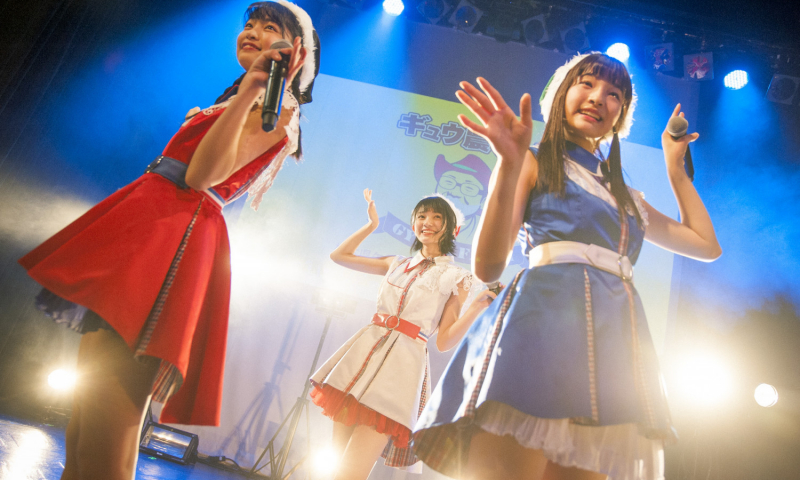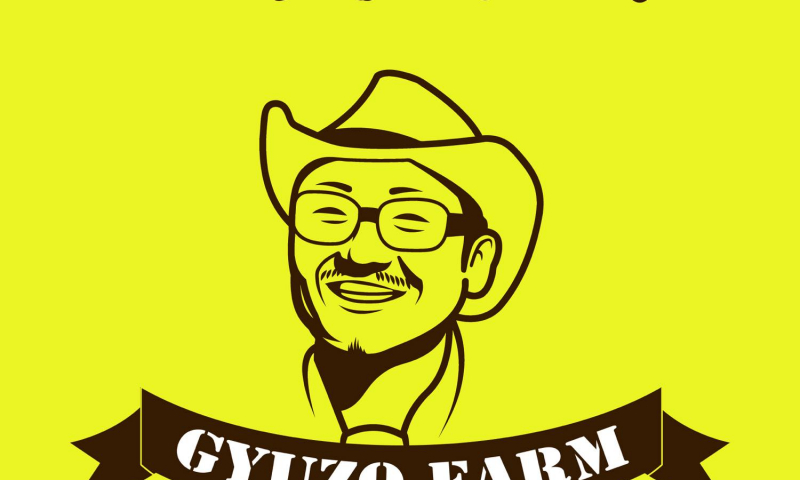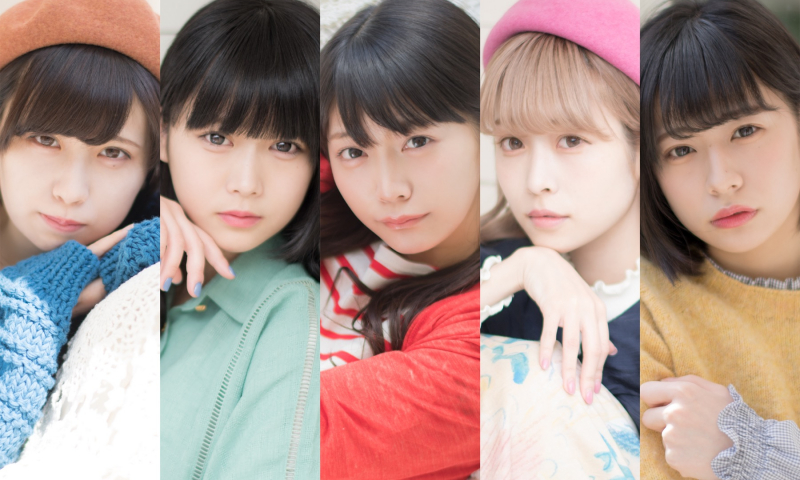
6th Wave of @JAM EXPO 2018 Performers Announced!
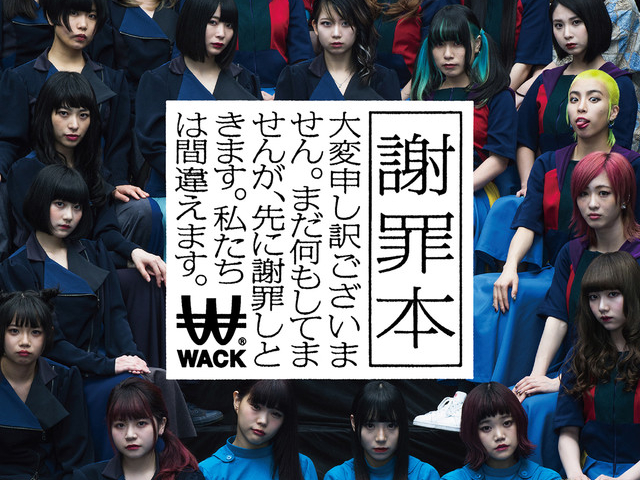

Sponsored Links
1.「病み」と「メンヘラ」の重さと軽さ
If you were to go to an idol’s handshake event, and you saw a wrist-cutting scar on that idol’s wrist, what would you do? There’s only one answer. No matter how much surprise you may feel, it’s not an area of conversation you should ever approach. The longer you’re an idol otaku, the more likely you are to encounter a situation similar to this someday.
もしあなたがアイドルの握手会に行き、その子の手首にリストカットの傷を見つけてしまったときはどうしたら良いだろうか? 答えはひとつだ。「どんなに衝撃を受けても、会話で決してそれに触れないこと」。あなたがアイドルオタクとして長く生きるなら、それはいつかどこかで遭遇する事態だ。
In Japan there’s a mental health term that idols and idol otaku are very familiar with. It’s called “being ill”, or yamu. Originally this word meant “getting sick”, but when younger Japanese use this term, often mean mental suffering and not physical illness. As a verb it’s “to suffer”/yamu and as a noun it’s “suffering”/yami. Both “suffering” and “darkness” are pronounced the same in Japanese as yami.
日本ではアイドルにもアイドルオタクにもとても身近なメンタルヘルス用語がある。「病む」という言葉だ。原義では「病気になる」という意味だが、若者が「病む」という言葉を使うときは、だいたい身体のことではなく精神のことである。動詞形が「病む」なら、名詞形は「病み」だ。日本語で「病み」と「闇」は、同じ発音の「やみ」である。
Idols suffer, like when few people who turn up to their concerts, handshake events, or polaroid events, or when they don’t receive heartfelt responses from idol otaku on Twitter. Idol otaku also suffer, like when they feel there is too much distance between them or their favorite idol doesn’t acknowledge them at concerts or respond to their tweets. Or additionally, it happens because idol work has a high level of exposure.
アイドルは病む。ライヴや握手会、チェキ会の人の少なさに。Twitterでのアイドルオタクの心ない発言に。そしてアイドルオタクも病む。好きなアイドルとの距離を縮められないことに。ライヴやTwitterでレスが来ないことに。あるいは、アイドルが露出度の高い仕事をすることに。
These are reasons why idols and idol otaku suffer on a daily basis. Twitter is a place full of those who are sick, where idols or idol fans tweet about their “suffering”. But no one can constantly be on it all day long.
そんなわけで、アイドルもアイドルオタクも日常的によく病んでいる。アイドルもアイドルオタクも「病み」をツイートするTwitterは、病人の巣窟のようなものだ。誰もがそれを一日中眺めている。
However, those who usually use the word “suffering” do so lightheartedly. “Suffering” refers to something not as serious as “getting sick”, and only goes as far as “being worried”. Personally, I often feel these topics are just silly.
しかし、「病む」と言う人が多いことは、その言葉の軽さをも意味する。「病む」という言葉が指すのは、「病気になる」というほど深刻な事態ではなく、「悩む」という程度の話に過ぎない。実際のところ、たわいもない話だと感じることが多いのだ。
But there is another word used just as frequently as “suffer” or “suffering”, which is “mental health”, or menhera. This Japanese-English word is used to refer to people who are actually suffering. (Not mental health as a mental state, like its actual meaning in English) However currently there are instances where people mistakenly use this word to describe slight changes to their emotional state. If it were really an issue of mental health, like they would have sought out a psychologist or a mental health professional, but there are people who claim to be “mental health” or are called “mental health” even when it’s not that serious of an issue. In this instance where “mental health” doesn’t equal someone experiencing real mental suffering, this is one situation where “subculture” and “sabukaru” are not necessarily one in the same.
「病む」や「病み」と同じぐらいよく使われる言葉に「メンヘラ」がある。これはもともとは本当に精神を病んでいる人を指す言葉だった。しかし今は、ちょっとした感情の揺れを言動で表す程度で、そう呼ばれてしまうこともある。本当のメンヘラならば、精神科や心療内科に通っているだろうが、そこまで深刻でなくても「メンヘラ」と自称する人もいるし、「メンヘラ」と他人から呼ばれる人もいる。本当に精神を病んでいる人と「メンヘラ」がイコールではない関係は、「サブカルチャー」と「サブカル」が必ずしも同義ではない構図と似ている。
2.約20年変わらないインターネット上の「メンヘラ」像
From the 90s until the present, there have been all kinds of content on the internet about “mental health”. Motifs like sailor outfits, wrist-cutting, gore, drugs, Japanese-style, and nudity have remained unchanged for almost 20 years. Although it’s a wonder that it hasn’t changed, it makes one wonder if these mental images are something that all “mental health” have in common. In daily life gloomy girls are common photographic subjects, and continue to be photographed by anyone calling themself a photographer. There is also the issue of low-life photographers taking nude photographs. (I would also like to caution that types of photographers constantly change their names and are always on the internet.)
1990年代から現在にいたるまで、メンヘラはインターネットに常に存在するコンテンツだ。セーラー服、リストカット、血糊、薬物、和風、ヌード。そうしたモチーフは、20年近くほぼ変わらない。呆れるほど変化がないのだが、メンヘラに共通する心象風景なのだろうか。日常生活で鬱屈した女の子が「被写体」となり、どこの馬の骨ともつかない自称「カメラマン」に撮影される光景も変わらない。人間の屑のようなカメラマンにヌードを撮られて問題化することもある(そういうカメラマンは名前を変えながらずっとインターネットにいるのでここで警鐘を鳴らしておきたい)。
One problem that “mental health” face is their proclivity to co-dependency on others. If an idol and idol otaku relationship becomes one of co-dependency, what are they waiting for? It’s not difficult to imagine.
メンヘラの抱えるひとつの問題は、他者と共依存関係に陥りやすいことだ。もしアイドルとアイドルオタクが共依存関係になったら、何が待っているだろうか? 想像に難しくないだろう。
Additionally, it’s also a problem when a person’s identity becomes “mental health”. When that happens it can take a great deal of time to escape this identity, or perhaps they may never be able to escape from it.
また、メンヘラであること自体がアイデンティティになってしまうという問題もある。アイデンティティとなってしまうと、そこから抜け出すには時間がかかるだろうし、あるいは二度と抜け出せないかもしれない。
Aya Nanjo, who was an active internet personality, passed away after repeated wrist-cutting episodes in 1999. As someone who knew her, even now I wonder if it is okay to recklessly defile her spirit like this. The longer you remain in a particular community, the more likely it is to lead to bad results.
インターネット上で活動していた南条あやが、リストカットを繰り返した末にこの世を去ったのは1999年のことだ。当時を知る者としては、彼女をむやみに神格化していいのだろうかと今でも迷いがある。特定のコミュニティに長くいることが良くない結果を招くこともある。
3.あいまいな日本の「病み」
Although the rate has now decreased, at one point in time there were 30,000 suicides committed annually in Japan. You could say depression is just one epidemic in Japanese society. In Japan, depression is often described as “a cold your heart gets”. This expression makes it vague whether depression is a serious or light illness. Its meaning is vague precisely because the suffering behind this mental disease is vague itself.
一時期よりは減ったとはいえ、日本は年間3万人近くが自殺している国だ。日本社会においてはうつは風土病のひとつかもしれない。うつ病は日本では「心の風邪」と柔らかく表現されることもある。その表現は、うつ病が重い病気なのか、軽い病気なのかを曖昧にさせる。精神の病気だからこそ抱える曖昧さだ。
Therefore, the definition of “mental health” has expanded to the vagueness of the word “suffering”, or yami. There’s a sense that it’s becoming more and more casual in use. If the word “suffering” were to become too widespread, there’s the dangerous possibility that those who are really suffering mentally and those using it in a throwaway adolescent fashion could be lumped one in the same.
そして「メンヘラ」は定義が曖昧になったまま「病み」へと拡張された。その流れはどんどんカジュアル化しているように感じられる。「病み」という言葉が広義すぎて危険だと感じるのは、本物の精神の病も、ただの厨二病崩れのファッションも、フラットに内包してしまうからだ。
This is one reason why using phrases like “cute suffering” can be complicated. It makes one wonder if connecting the words “suffering” and “cute” is really something positive.
だから「病みかわいい」という言葉が使われていると、複雑な気持ちになってしまう。「病み」を「かわいい」と直結させて、そこまで肯定していいのだろうかと。
4.日本のアイドルが「病む」構造的な理由
I’ve heard from idols that there are many “mental health” among underground idols. Because I haven’t checked each person’s wrists myself, I can’t confirm whether this is a fact or not. But if you read Tama Himeno’s Senko~ Chika Idol no Hito ni Ienai Seikatsu (Underground Investigation~ The Unspoken Lifestyles of Underground Idols), published in September, it doesn’t seem to be a lie.
地下アイドルにはメンヘラが多い、とアイドルから聞いたことがある。ひとりひとりの手首を確認したわけではないので、それが事実かどうかはわからない。ただ、「地下アイドル」を自称する姫乃たまが今年9月に出版した著書「潜行〜地下アイドルの人に言えない生活」を読むと、それはあながち嘘ではないとわかる。
For Japanese idols, one aspect of the market is that it is most profitable when idols give their all. But forcing this work ethic on idols inevitably causes them to suffer. And if the idol herself is caught up in the desire to please, it likely causes her to suffer even more. This is the fundamental reason behind Japanese idol “suffering”.
日本のアイドルは、全力で頑張ることがマーケットにおいて至上価値となっている側面がある。努力を強いることは必然的にアイドルを苦しめる。そこにアイドル自身の承認欲求が絡めば、なおさら苦しむことになるだろう。ここに日本のアイドルが「病む」ことになる構造的な理由がある。
There is a personality gap between the idol that sends out “suffering tweets” in the middle of the night and the “appropriate idol image”, giving her character more depth. They also cause a commotion on otaku fan LINE groups. So tweets like these are usually deleted before morning.
深夜に「病みツイート」をするアイドルには、「あるべきアイドル像」とのギャップが生まれて、キャラクターに深みが生まれることもある。オタクたちのLINEグループを動揺させながら。そうしたツイートはだいたいは朝になると消えている。
Nonetheless, if an idol with a weak heart was to reach out to idol otaku, it would be grounds for dismissal. The news of Sakura Shiraishi from Enta no Jikan being dismissed on grounds of her wrist-cutting is still fresh in our minds. (That she is still currently tweeting on Twitter is a relief.)
とはいえ、アイドルは心が弱まってアイドルオタクとつながれば解雇されてしまう。「エンタの時間」の白石さくらがリストカットを理由に解雇されたことも記憶に新しい(彼女がTwitterで現在もツイートしていることは救いだ)。
When “Zenbu Kimi no Sei da“, a group embodying the “visual concept of cute suffering” came out, I went to see them live despite my complicated feelings on the issue, and they were surprising energetic, which made me feel honestly relieved that their “cute suffering” was strictly a visual concept.
「病みかわいいをヴィジュアルコンセプトにしたアイドル」だという「ぜんぶ君のせいだ。」の登場には、複雑な感情を抱いたが、実際にライヴを見たところ意外にも元気だったので、正直なところ安心した。「病みかわいい」はあくまでヴィジュアルコンセプトだ。
On Yandoll’s official site, where “suffering” was listed as a requirement for member recruitment, it was written that former-member Maron Asahina would “cease activity as part of the group on September 30, 2015 due to doctor’s orders”. It makes me wonder if she is all right…
「病んでること」を応募資格としてメンバーを募集した「病ンドル」の公式サイトでは、メンバーだった朝日奈まろんについて「ドクターストップにより2015年9月30日をもって活動を辞退する事となりました」と書かれている。大丈夫なのだろうか……。
5.「病み」への処方箋
I first heard the song “my cut” by Maison book girl at their concert on January 9, 2015. When Megumi Koshoji sang lyrics reminiscing about wrist cutting while staring at her wrist, I felt her appeal for the first time since finding out about her when she was in BiS. When it’s sublimed with music as an art form, it can produce a shining quality. Ideally, I would like to completely separate “mental health” or “suffering” with the art of idol. It’s difficult.
Maison book girlの「my cut」という楽曲を初めて聴いたのは、2015年1月9日のライヴだった。コショージメグミが手首を見つめながらリストカットを連想させる歌詞を歌った瞬間、BiS時代から知っていたコショージメグミを初めて魅力的だと感じたものだ。音楽という芸術に昇華されてこそ輝くものもある。「メンヘラ」でも「病み」でもどちらでもいいのだが、そういうものを抱えた個人の問題と、アイドルとしての芸事は、まったく別次元のものとするのが理想形ではある。難しいが。
There is a member of POP, which has become a part of the current main scene, named Yua Yumeno. In POP she is the “lamb in distress” leader. Her self-introduction begins with the words “Don’t suffer!” which she shouts with otaku fans together. During that moment, there are otaku fans who gulp down medicine. It comes off as careless. However, sometimes I think humor can be something used to neutralize “suffering”. But even if you make it your own joke, “suffering” is like walking a tightrope in darkness, and if you let your guard down, you can also be swallowed inside of it.
さて、私の現在の主現場のひとつになっているPOPには、ユメノユアというメンバーがいる。彼女はPOPの「悩める子羊」担当だ。そして自己紹介では、「病まないでー!」とオタクが一斉に叫ぶ箇所がある。そのタイミングで、デパスを一気飲みするオタクもいるという。まったく不謹慎な話だ。ただ、ときに「病み」はユーモアで中和することも必要なのではないかとも思う。「病み」は暗闇での綱渡りのようなもので、自分でネタにしていても、ふと気を抜くと本当に闇に落ちてしまうものなのだから。
Sponsored Links
BiS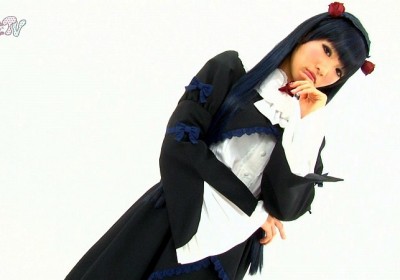
[Exclusive Program] Tokyo GIrls’ Update TV #006 : SBY in Shibuya109 & Pikarin’s Cosplay

8th Wave of Tokyo Idol Festival 2016 Performers Announced!!


